Guide to Scientific Instruments: pH Testers and Conductivity Probes
March 21, 2023
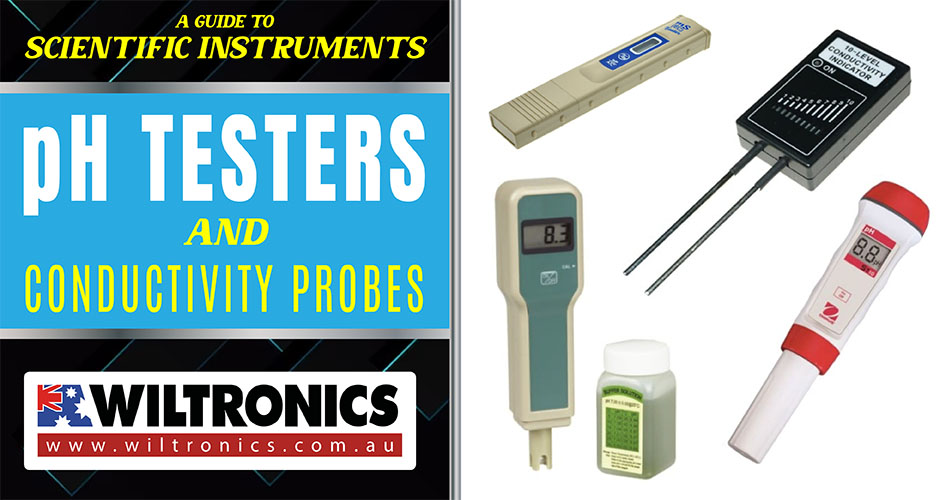
pH testers and conductivity probes may sound like complicated scientific instruments. But they are, in fact, essential in field and laboratory settings.
Although these tools are not the same, they share the same purpose. That is to measure the acidity and/or electrical conductivity of a solution. This guide will explore what pH testers and conductivity probes are.
Understanding these tools can help you achieve better results. This applies to cultivation, e.g. crop growth, or lab experiments, e.g. developing a new product.
pH Testers
pH testers are devices used to measure the acidity or alkalinity of a liquid or solution. This is done by measuring the concentration of hydrogen ions in the solution.
In this measurement, the higher the pH value, the more alkaline the solution is. In contrast, the lower the pH, the more acidic the solution is. But when both ranges are almost equal, the solution is neutral.
pH testers can come from simple paper test strips to electronic handheld devices (a.k.a. pH meters.) They are commonly used in settings such as the food and beverage industry. They help ensure solutions are in optimal performance or safe for use.
Get your pH testers below!
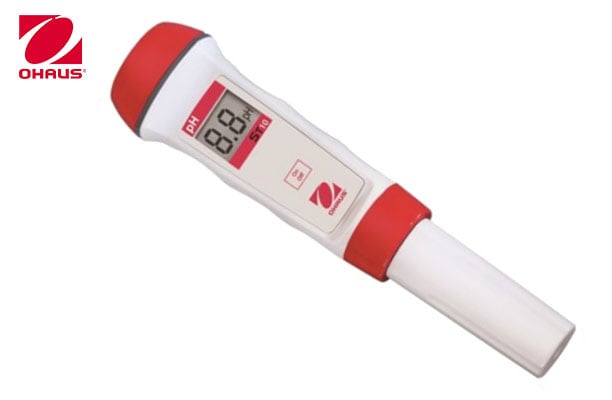
Ohaus ST10 pH Pen
Product code: ME4318
Ohaus ST10 pH Pen meters are an economic tool. You can get an accurate measurement without restriction. It measures 0.00 – 14 pH and has an accuracy of ±0.1 pH.
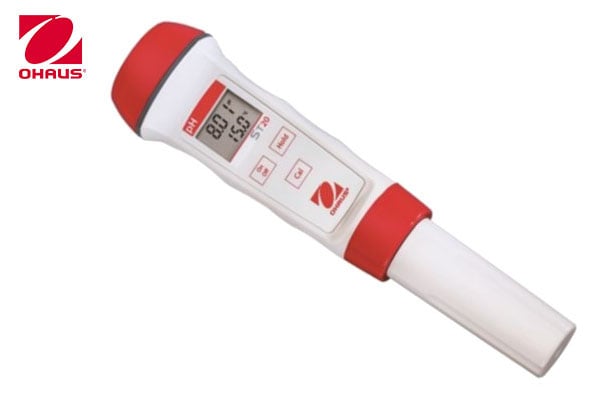
Ohaus ST20 pH & Temperature Pen
Product code: ME4320
The Ohaus ST20 pH and Temperature Pen is compact and useful. It can measure between 0.00 – 14 pH and 0.0 – 99.0 °C.
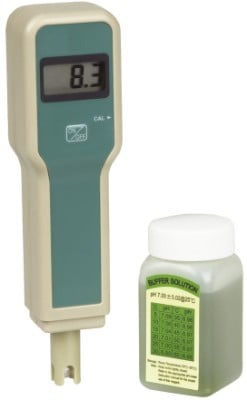
Handheld pH Meter for Water
Product code: ME4338
Perfect use for fast and accurate detection of water pH levels in aquariums, pools, and more! It provides optimum accuracy and is easy to use with an included calibration tool.
It features a large liquid crystal display that gives clear and precise readings. This unit also has an extendable probe that can be adjusted to suit each application. Supplied with a 9-volt battery, a bottle of pH 7.0 buffer solution, and a calibration tool.
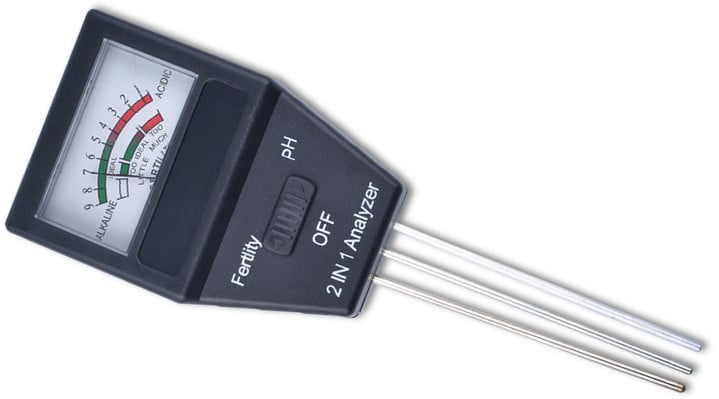
Soil Tester 2 in 1 – pH and Fertility
Product code: ME4328
A handy 2 in 1 soil tester to keep your plants in the best condition! Use this to test the pH and fertility of soil to determine suitability for planting.
Conductivity Probes
Conductivity probes measure the ability of a solution to conduct electricity. In short, these probes measure voltage by comparing a known V with an unknown one.
They detect changes in electrical conductivity caused by changes in the:
- concentration
- purity
- or temperature of a solution
The amount of current that flows through the solution equals its conductivity. This allows for accurate measurements. They are commonly used in various applications such as:
- Water quality control
- Chemical analysis
- Pharmaceutical manufacturing
The known voltage is “the reference voltage.”
Get your conductivity probes below!
Conductivity Tester, 10 Levels
Product code: ME4370
This 10-Level Conductivity Tester visually compares the conductivity of different solutions. These include tap water, vinegar, baking soda solution, or varying saltwater concentrations.
The green LED is numbered from 1 to 10 and will light up as the probes are dipped into the solutions of salts or acids. From 1 (low) to 10 (high).
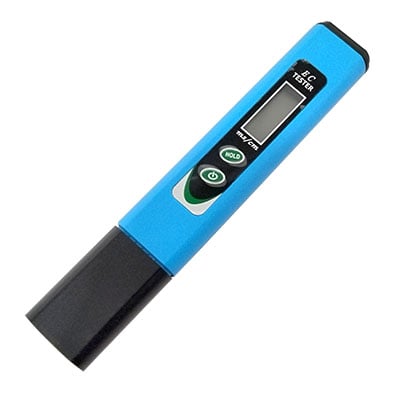
EC mS/cm Conductivity Probe
Product code: ME4332
A pen-sized probe tester that measures the amount of salt (conductivity) in water. It is easy to use, totally waterproof and features a long battery life.
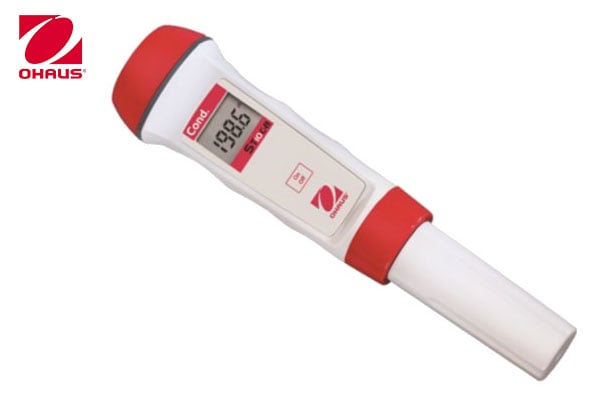
Conductivity Tester Pen Ohaus ST10-A 0-199.9us/cm
Product code: ME4340-A
This Conductivity Tester Pen will allow you to measure between 0.00 – 199.9 μs/cm. It is physically small, making it compact and convenient to use.
Other features include automatic shut-off and replaceable electrodes.
pH and Conductivity Explained
The potential of hydrogen or ‘pH’ is the measure of hydrogen ion concentration. In a sample, pH determines its acidity or alkalinity. The pH scale ranges from 0-14, with 0 being acidic, 7 being neutral, and 14 being alkaline.
Conductivity is the measure of the concentrations of ions present in a sample. This is calculated by the substance’s ability to send an electric current in a defined area.
The measurement unit for electrical conductivity is Siemens (S). For instance, milliSiemens per centimetre, which is abbreviated as mS/cm. The conductivity range is from 0-200µS, 200-2000µS, and 2-20mS (0.1µS) for most models.
Common Uses of pH Testers and Conductivity Probes
pH testers and conductivity probes are important in many industries. Below are just a few examples of the many applications:
Managing water quality
One of the most common uses for both tools is to adjust the pH level of water according to need. Maintaining an optimal pH balance is essential for every lifeform’s health. This applies to swimming pools, aquariums, and hydroponics systems, to name a few.
pH tests can also measure ammonia levels that might be toxic to aquatic organisms.
Monitoring soil conditions
Another use for these tools is monitoring soil conditions. By testing the soil’s alkalinity or acidity levels, you can optimise the growth rate of plants. Using these tools allow you to determine what nutrients should be added, such as:
- Potassium
- Phosphorus
- Magnesium
- Calcium
The readings are also important when planning what type of crops should be grown. This is because particular types have different requirements.
Testing brewing solutions
Brewers often use special digital meters with temperature compensation equipped with probes. Such conductivity probes are calibrated explicitly for their premium beers.
The readings help fermenters ensure accuracy when blending ingredients at various stages. This results in a consistent product throughout the brewing process. Thereby addressing demands from customers who expect high quality control for their beverages.
Analysing fuel mixtures
Both devices can be of use not just in agriculture, labs and research institutions. They also prove to be invaluable to automotive engineering technicians.
Liquids play a large role in fuel efficiency and emissions control. Mixtures containing oil must fall within specific tolerances during combustion engine operation. Having precise readings gives mechanics real-time data needed to diagnose potential issues quickly. At the same time, keeping repair costs low. This makes them key players during annual vehicle safety inspection protocols.
The Bottom Line
pH testers and conductivity probes offer useful insights not just in agriculture. But they are also found within medical laboratories, aquaculture settings, and automotive departments. Moreover, in several industrial and commercial type applications.
This article was originally published in November 2020 and has been updated.
© Electrotech Brands Pty Ltd 2023


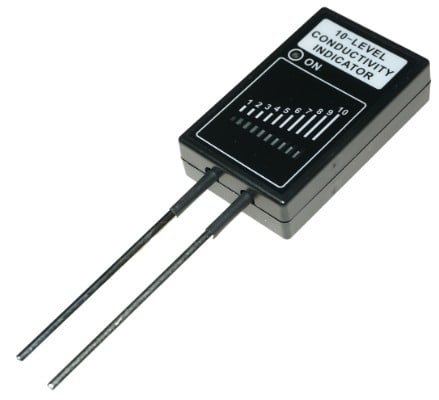
Write a Comment
You must be logged in to post a comment.